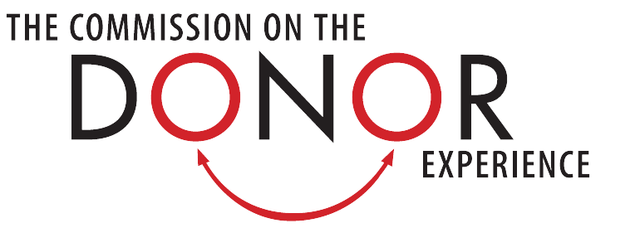CDE project 9: putting the principles and actions into practice — part 9
- Written by
- The Commission on the Donor Experience
- Added
- April 20, 2017
Retaining your major donor fundraisers
One of the constant discussion topics amongst senior major donor fundraisers is how hard it is to recruit and retain major donor fundraising talent and experience. Major donor fundraisers are in high demand from organisations large and small.
For frontline major donor fundraisers, there are numerous opportunities to move up the career ladder, to take on a management role and, of course, to command a higher salary. These opportunities pose challenges for major donors and organisations. The very essence of major donor fundraising is building long term, personal relationships—and that is very hard when major donor turnover is high. Five specific challenges emerge:
- good major donor fundraisers get promoted or move to more senior roles frequently, and then they spend more time managing and less time with major donors, the very thing that led to their promotion or move.
- for smaller organisations, where there might be only one major donor fundraiser, there may be significant gaps in donor relationship management.
- major donors who have a long-term relationship with an organisation might experience a new relationship manager every 12–18 months. One consultant described reviewing major donor programmes and finding multiple communications from new major donor fundraisers to long-term donors. Each communication consisted of a version of ‘hello, I’m your new contact here at x’ with no response from the donor between the communications.
- the donor’s story—the how and why he or she came to support the organisation—may be lost.
- fundraisers seem to donors to be ‘sales people’ who move between causes, rather than passionate advocates of the particular causes that move them.
‘Some of the people that come to see me from time to time are what I like to call “professional money-slingers”. They start off very rapidly, giving their case. They don’t allow any time for a colloquy between themselves and the donor. You know, there’s a time when a sale is made and some people don’t know it.’
‘So many of them just start out on their rote. I don’t know whether it’s a prepared statement or whatever it is. It’s kind of like a machine gun presentation. And there’s no colloquy at all. You don’t allow the donor to even get a word in edgewise. Terrible mistake, because when the donor asks questions, you begin to know that he has an interest. But if he has no chance to do it, that opportunity just passes by. And I’ve seen it happen.’
William Whipple, American philanthropist [43]
So what makes a great major donor fundraiser?
‘As the fundraiser, your job is to be the expert on what motivates them. Powerful people can be demanding and you need to be flexible, confident and, above all, tenacious to secure their trust.’
Matthew Ferguson and Gemma Peters, Directors of Principal Gifts King’s College London & King’s Health Partners [44]
‘There’s one attribute above all that fundraisers must cultivate, and that is being a good listener. It’s not difficult, in theory. Just keep your mouth shut and your ears open.’
Richard Brown, president of RB Consulting [45]
Key characteristics of a major gift fundraiser are
- passionate about the cause, not a sales person for any cause.
- a listener who is genuinely curious about what makes people tick.
- persistent without being annoying.
Or as Jhumar Johnson puts it (and particularly note the second sentence):
Major donor fundraisers require confidence, creativity, charisma and passion to negotiate with and influence individuals to dig deep and invest in (often intangible) long-term interventions. They need those same qualities to help their organisations prepare to share space with a philanthropist.
Jhumar Johnson [46], executive coach, mentor and trainer
There are a wide range of actions and approaches that organisations are taking to ensure they recruit and retain the right major donor fundraisers, including:
1. recruiting people with the right characteristics, not necessarily with major donor fundraising experience.
2. in vesting in ‘on-boarding’, immersing new recruits into the organisation to inspire their passion and to ensure they know the detail of the organisation’s work.
3. applying retention and reward models that are common in higher education and in the USA so experienced major donor fundraising staff can remain in frontline donor facing roles, rather than pursue management career development options.
As Rob Woods [47] puts it:
‘Two things to ensure golden results:
a) Help your fundraisers get the knowledge, skills and above all confidence – why wouldn’t you get them decent training? If you think you have no budget, cut corners off an event budget (for example). Or don’t do major gifts at all.
b) Create a culture in your organisation that helps them succeed.’
Rob Woods, Bright Spot Fundraising
----------------------
[43] http://www.advancementresources.org/Blog/From-the-Archives/160/Q-A-William-Whipple-on-the-Joy-of-Giving-the-Role-of-the- Fundraiser.aspx
[44] https://www.theguardian.com/vo...
[45] http://www.thenonprofittimes.c...



















